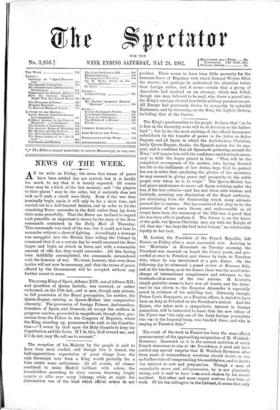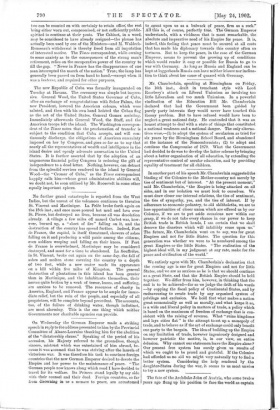The event of the week in France has been the
aemi-official announcement of the approaching resignation of M. Waldeck- Rousseau. Inasmuch as it is the natural ambition of every French statesman to aim at the Presidency, it need not have excited any special surprise that M. Waldeck-Rousseau after three years of extraordinary exertions should decide to run no further risks of compromising his candidature, and to devote the interval to rest and preparation. Though a man of remarkable nerve and self-possession, /3e is not physically strong, and is said to have been much shaken by his recent accident. But other and more cogent motives have been at work. Of his ten colleagues in the Cabinet, it seems that only
two can be counted on with certainty to retain office; the rest being either worn out, compromised, or not sufficiently public- spirited to continue at their posts. The Cabinet, in a Word, may be considered to have already resigned—the phrase has actually been used by one of the Ministers—and M. Waldeck- Rousseau's withdrawal is thereby freed from all imputation of interested motive. The Times correspondent, while owning to some anxiety as to the consequences of the strong man's retirement, relies on the recuperative power of the country to fill the gap. "Never in France has the disappearance of one inaninterrupted the march of the nation." True; the lamp has generally been passed on from hand to hand,—except when it was a lantern°, and required for other purposes.







































 Previous page
Previous page